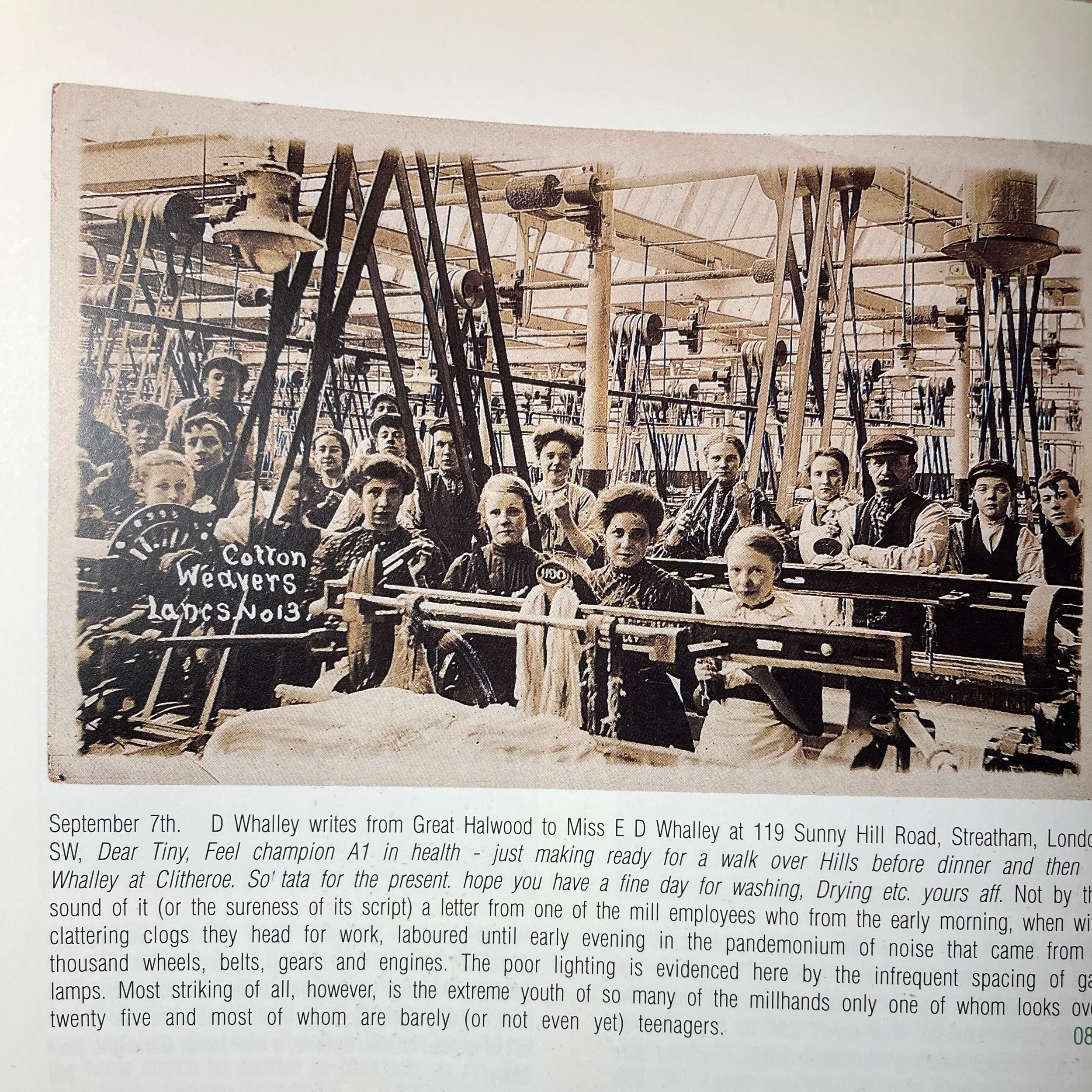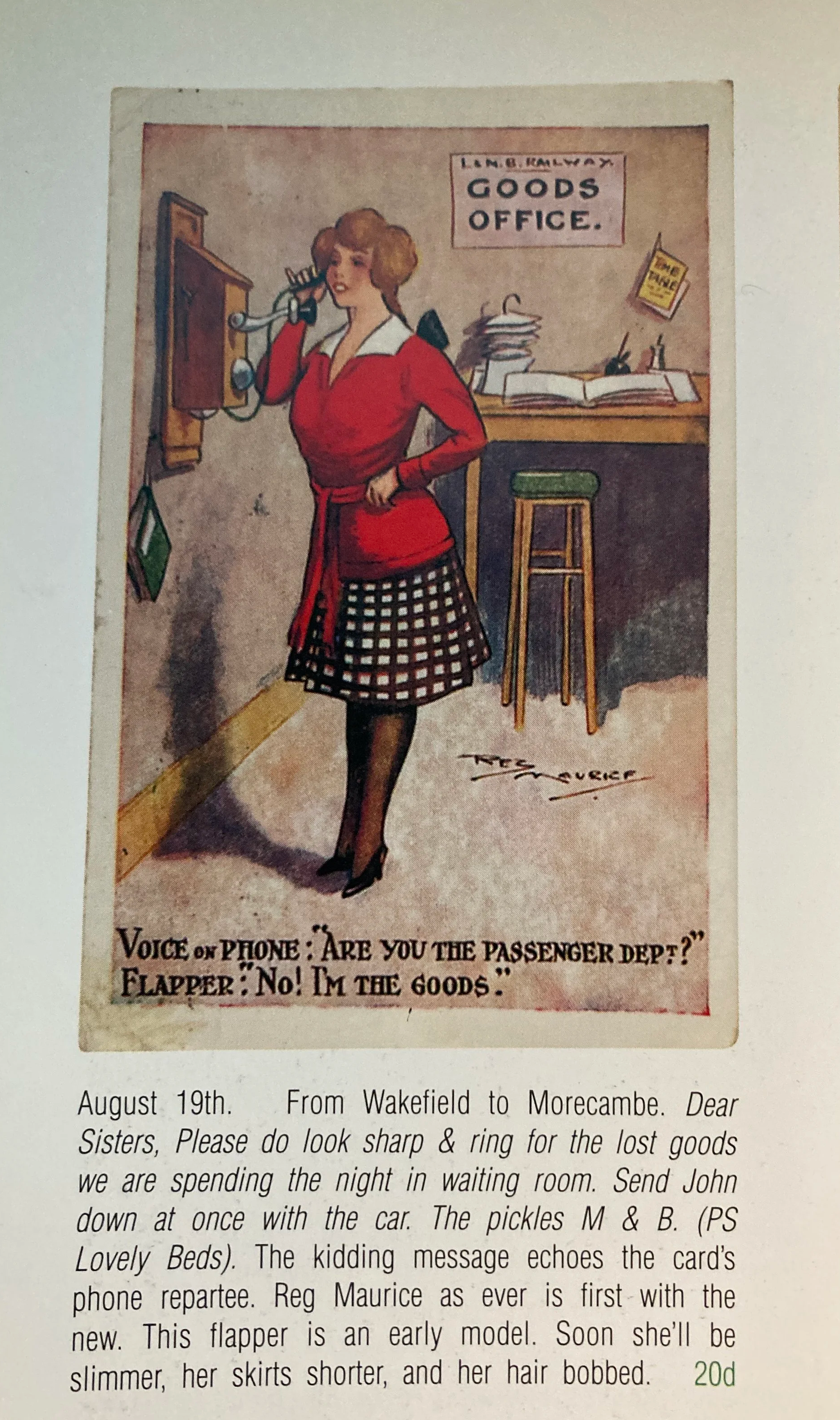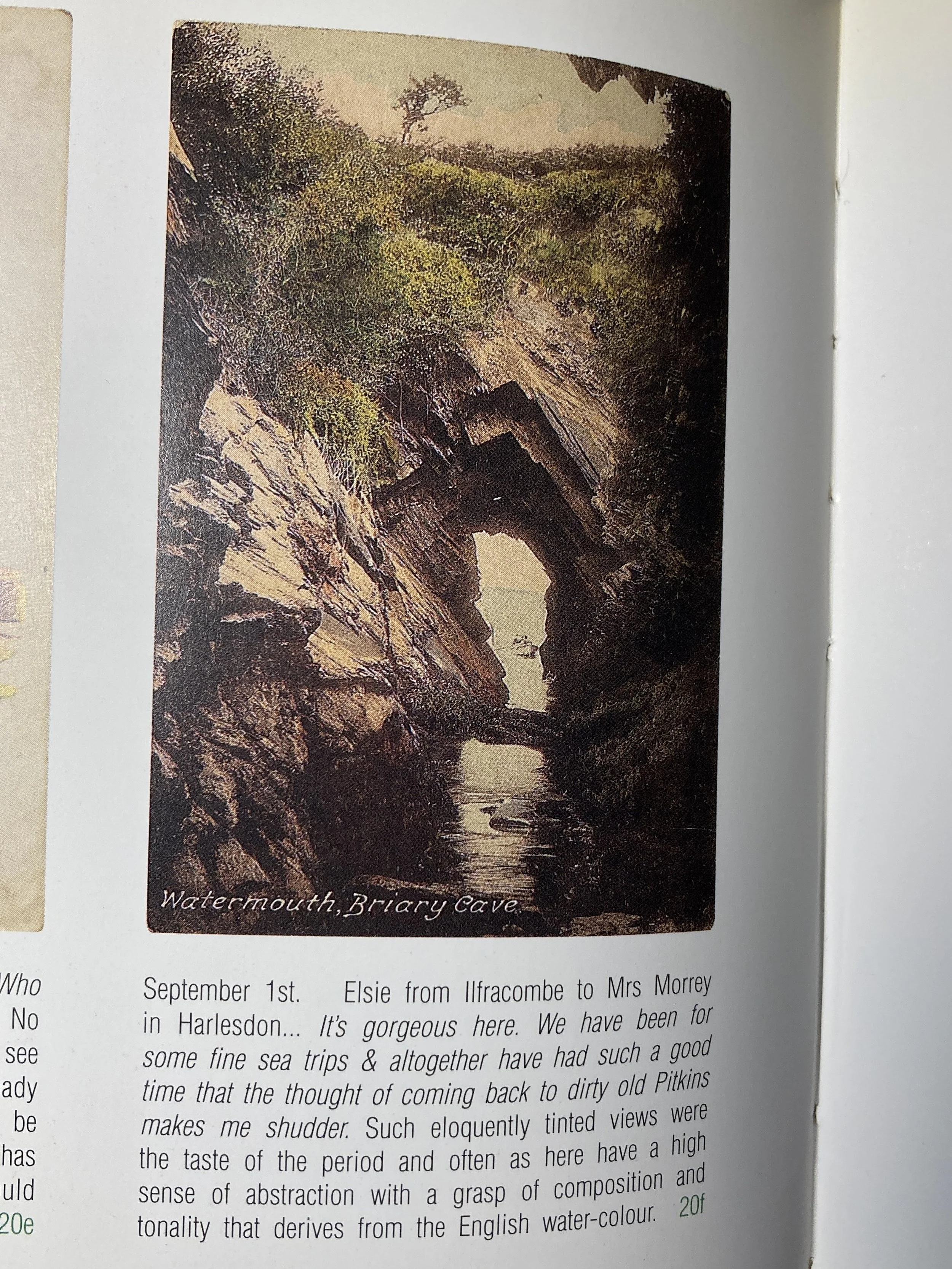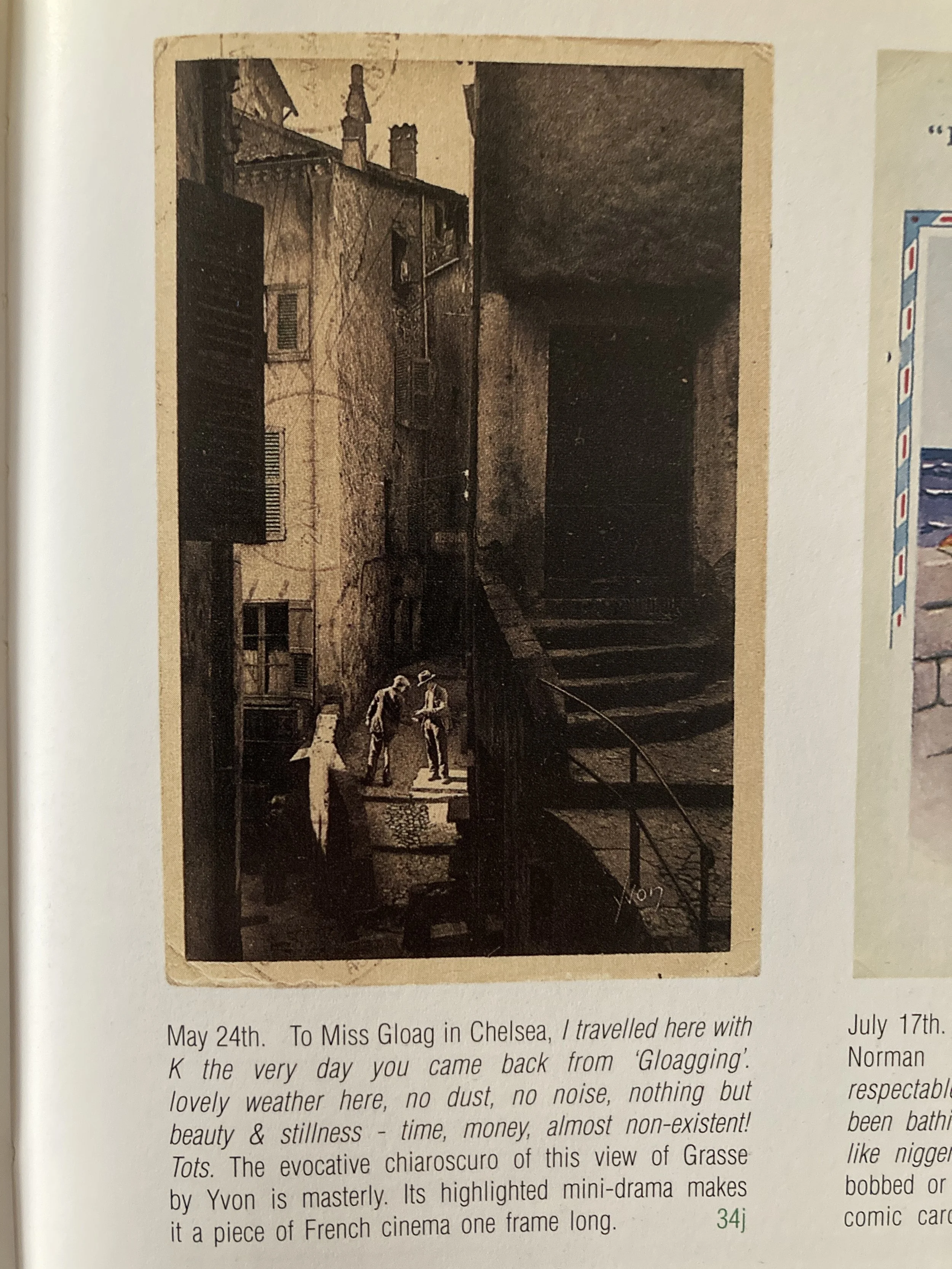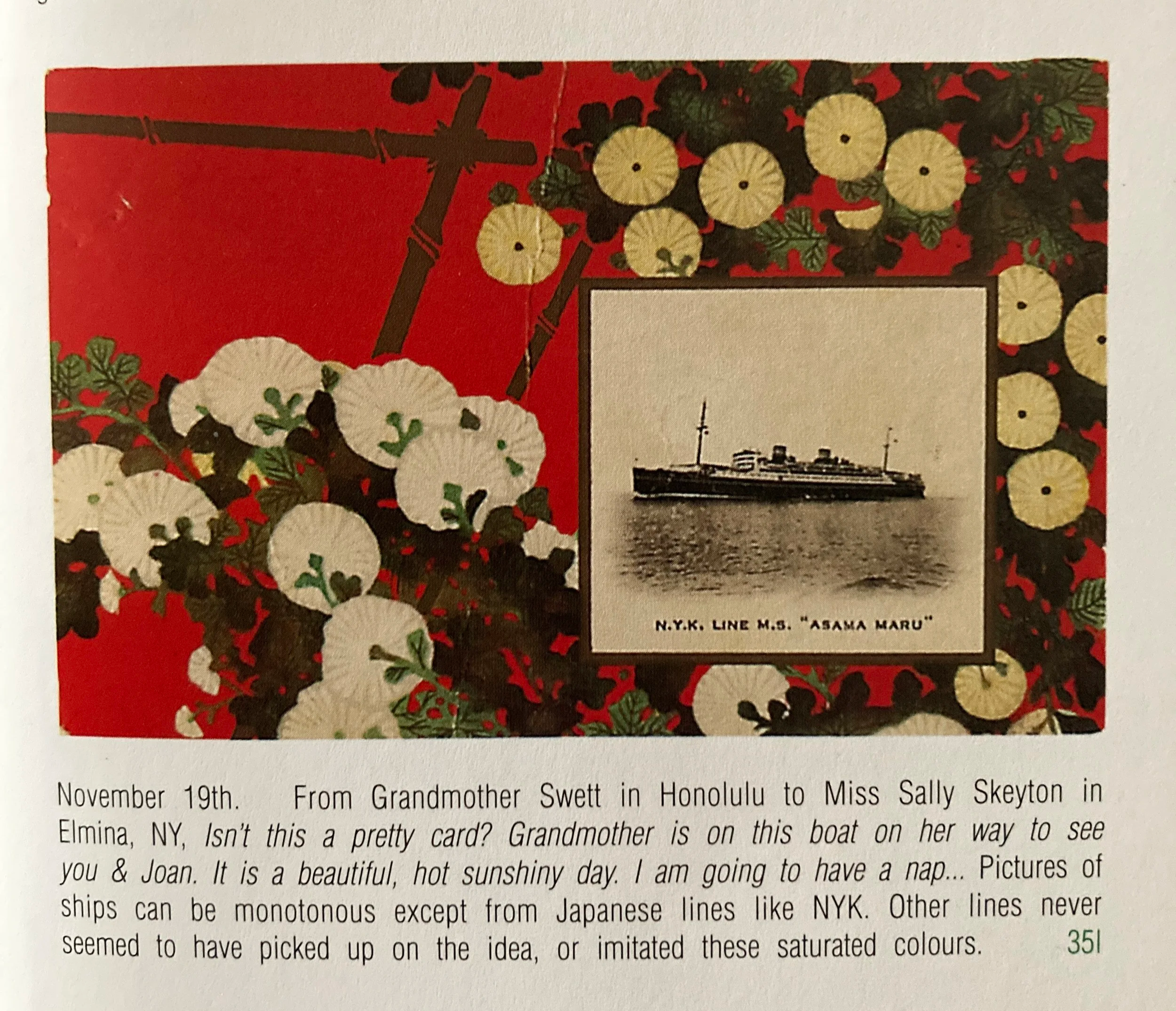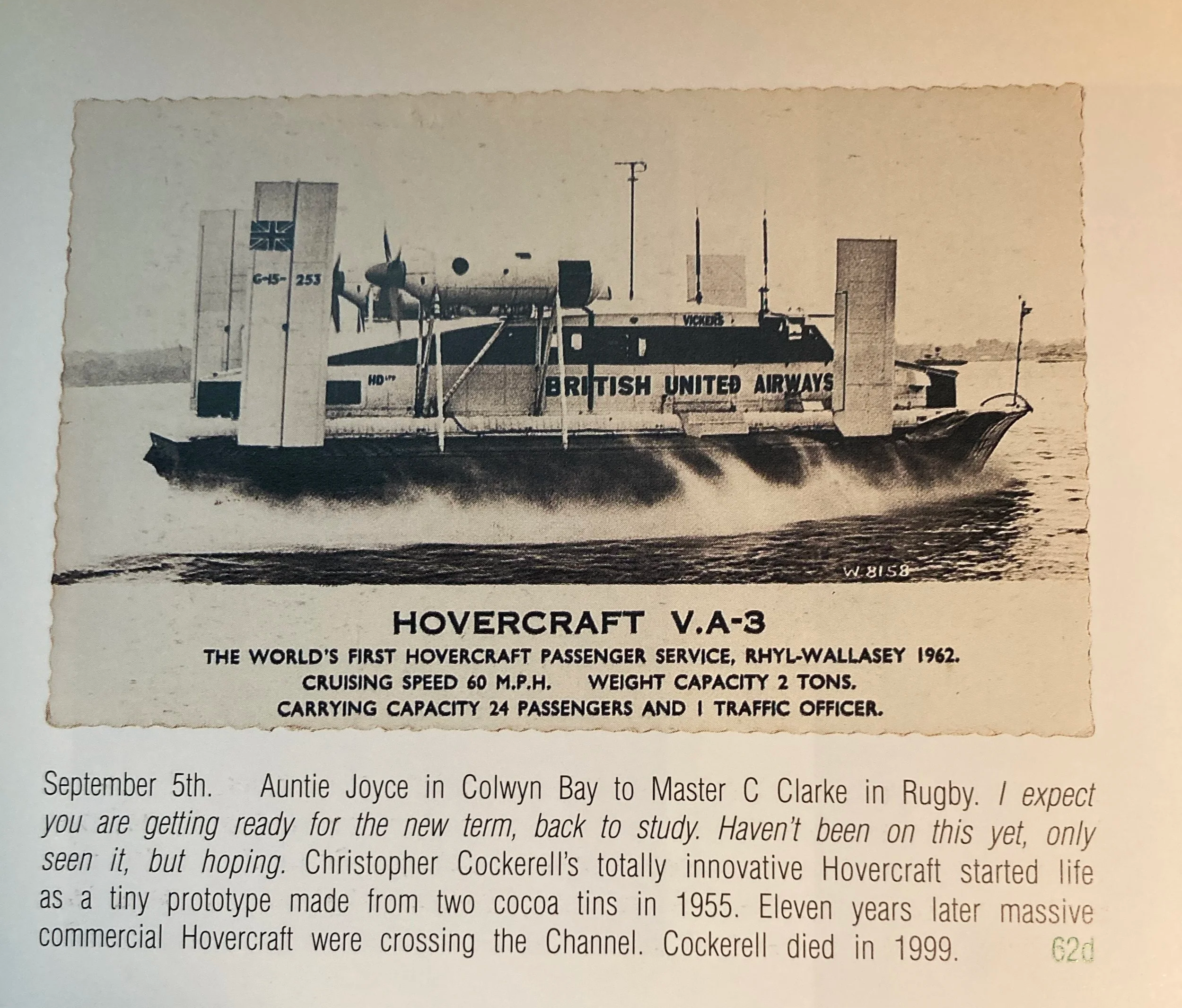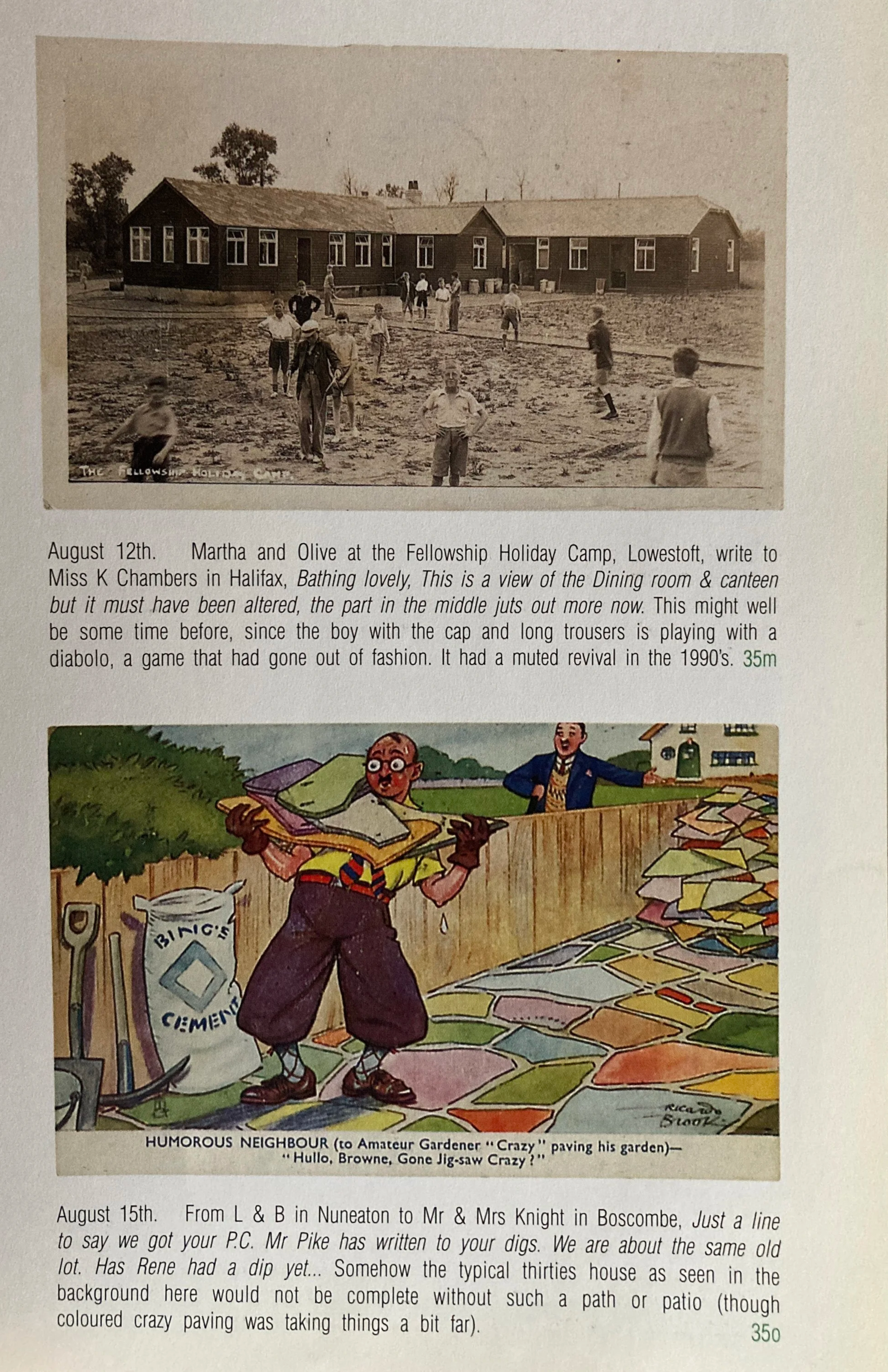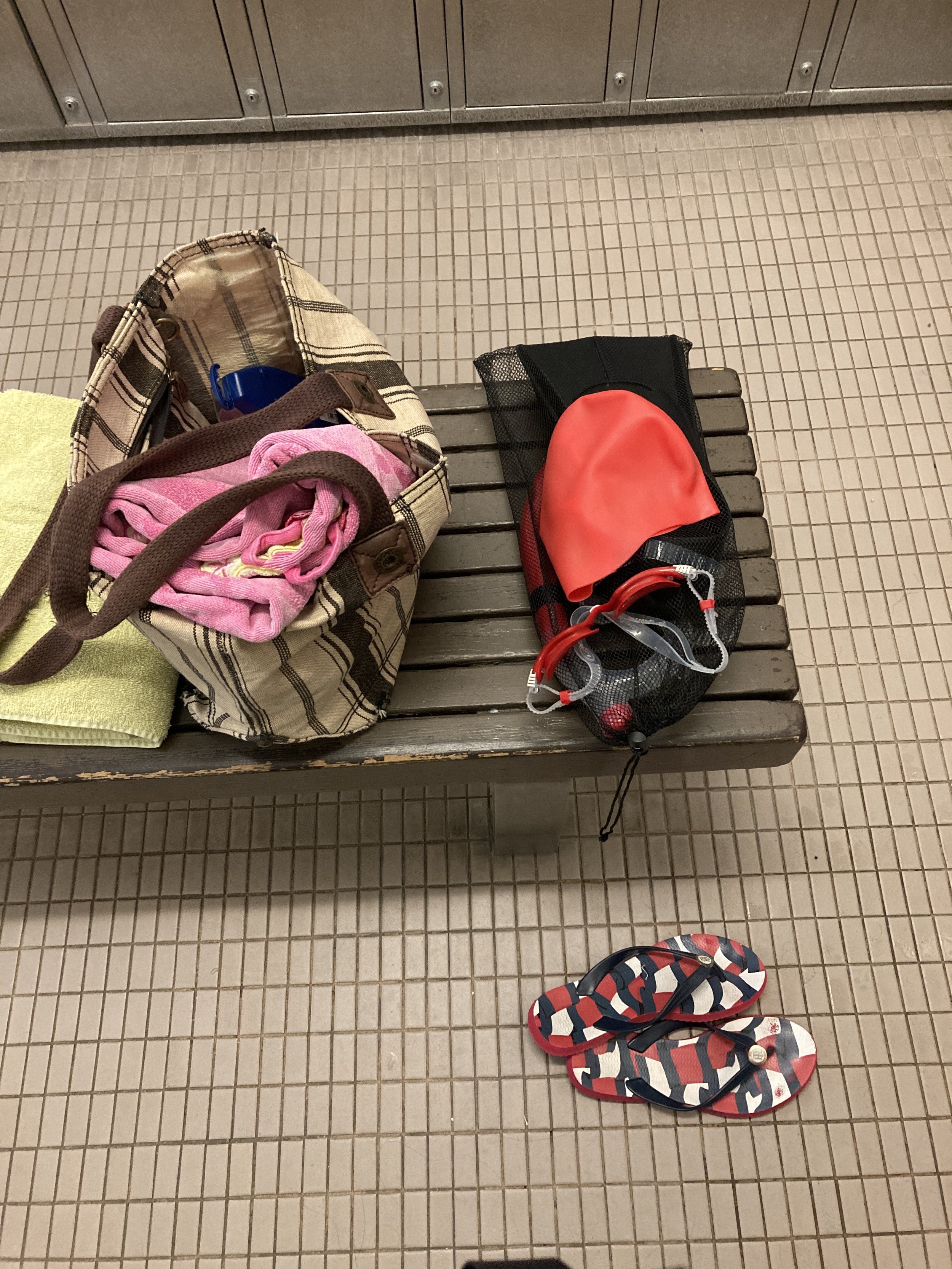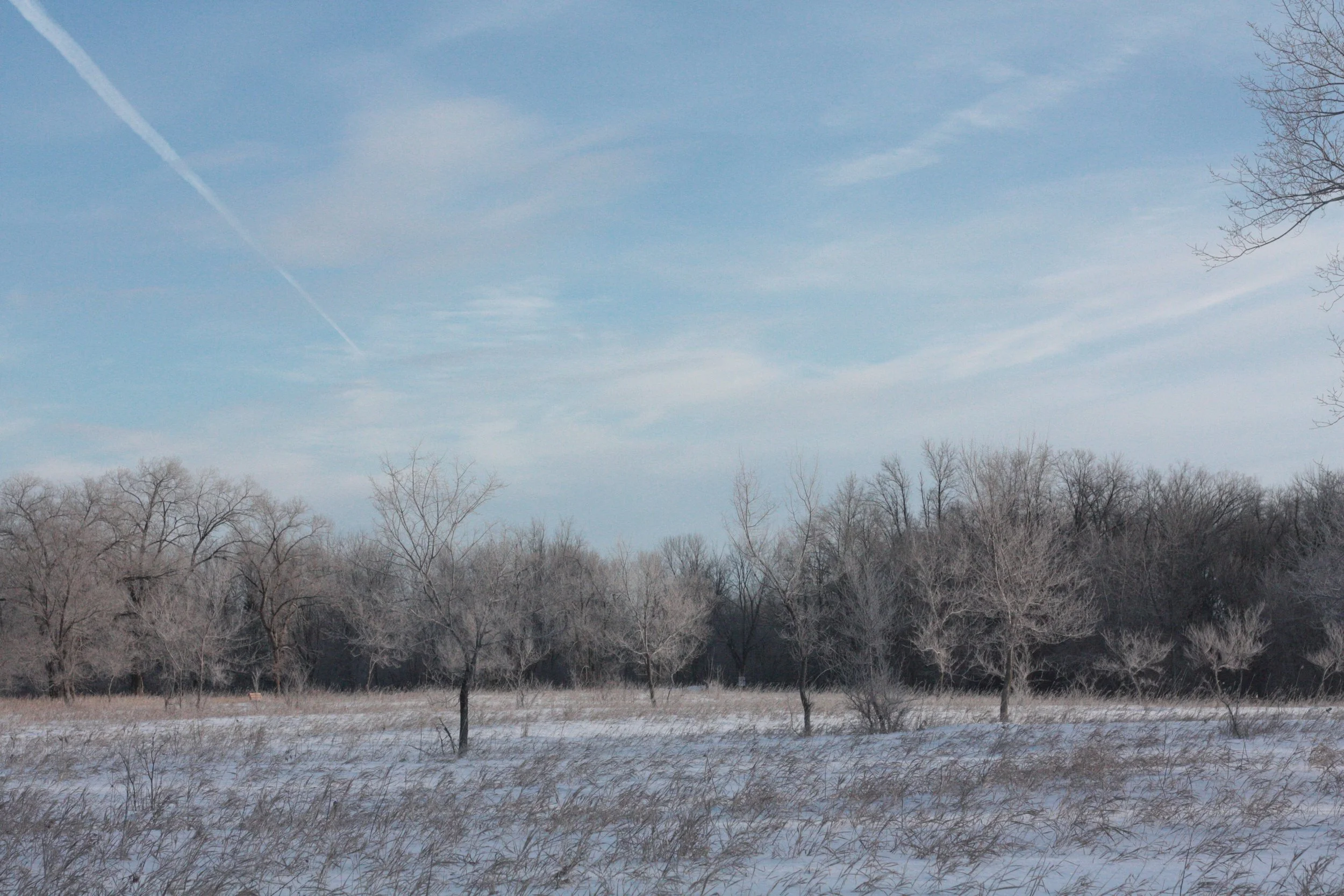A few more postcards
Last week I shared the bulk of what I appreciated from reading through Tom Phillips’ The Postcard Century, but there are still a few more postcards I really liked… For example, this picture of mill workers in 1908 caught my eye… some of the ancestors of the families who settled in Aubigny, who were a subject in my master’s thesis, worked at a mill like this, and were, yes, just as young.
This postcard of an early style of flapper is so interesting for marking a not-yet-complete shift in trend.
I really like these pictures and the author’s notes...
And this one from Japan…
I like this mini-history of the hovercraft…
Final two… one noting a game gone “out of fashion” and the other, just silly, featuring cement!
Tangentially, Tom Phillips’ home was featured on World of Interiors.
Cement
Speaking of cement makes me think of my dad who really liked working with cement. I don’t think I ever learned to appreciate it as much as he did, but this TikTok account I follow, of a woman building a tunnel under her house, recently went briefly in-depth about the material, and I thought it was pretty neat!
Taking care
I’ve mentioned Liana Finck before, having unearthed a quote of hers that I liked on the subject of perfectionism (see here). More recently however, she illustrated the feeling she has for “needing to draw” in a way that reminds me of the feeling I have of “needing to write”.
Swimming (part 2)
For part 1, see here.
I realize that I’m getting more comfortable with water, it now being 20 times I’ve been to the pool… 20 hours since October 17th. It’s not that many hours, nor does the training have the intensity of multiple-visits per week. And I think that is part of the surprise and delight of it… Here Christian and I have found a cheap way of getting out of the house on Friday nights and this simple practice is already to good effect. Observing the brain… the thoughts as they arise, as they change, is still a source of wonder. Take the sound of water… Recently, Kottke linked to a video of a breaching whale, and as I listened to the gurgle of the water in the speakers, I noticed my brain register a kind of comfortable familiarity. I only noticed because it was new. The sound of water has never given me that signal before.
Where I’m at with technique (and fear!). I’m at a stage of doing freestyle laps in the shallow end with a snorkel and sometimes fins. Ten visits further on my quest to teach myself to swim, I notice that I’m more comfortable using the snorkel. I do take breaks, and I do look forward to being able to swim a lap without it, but for now, it’s become more and more useful. At first, my brain couldn’t get past the sensation of breathing through a snorkel, and feeling water in my nose. Repetition of the exercise has allowed me to move on and for attention to go to concentrating on kicking and pulling.
This growing awareness of how the body moves through water has been really fun to explore, and when I write explore, I’d underline the fact that it is a very gentle exploration. Fear causes a kind of rigidity in the water that’s normal. I notice it in other beginning swimmers like myself, who - unlike myself - generously agree to have their learning filmed for YouTube, on channels such as Rocket Swimming. Kicking on my back in streamline position has an almost natural feel now, compared to when I did so 9 visits ago. The first time I did a lap in this position, my arms were so sore out of water - from being so tense in water - that I could barely lift them. It’s nice to feel less rigidity in my body.
Finally, in the queue of self-guided Youtube tutorials I’m currently paying attention to, are those that demonstrate backstroke and proper form for freestyle (like this video from Effortless Swimming). Putting the drill for 90 degree rotations (at about 12 minutes) into practice feels like another way of preparing myself for taking breaths, sans snorkel.
Why does this seem to be working? I suspect a good chunk of the credit can go to my husband whose love of swimming is further inducement to continue. It takes a little shove to get ourselves out of the house in the middle of winter, but we feel so good after an hour in the pool. Seeing how we are both mutually benefitting from it is a real source of happiness.
Enjoying
I really liked this quote by Walt Hunter in his article “Stop Meeting Students Where They Are”: “The reaction to declining reading skills, poor comprehension, and fragmented attention spans should not be to negotiate or compromise, but to double down on the cure.”
It makes me smile when unrelated podcasts happen to share a theme… In that nonchalant way professional podcasts can interest listeners in any subject, Search Engine did an episode on flushable wipes. Then, because I’m striving to be a good citizen by being moderately informed about local subjects, I listened to the most recent episode of Our City, Our Podcast and was amused to find out it was on the subject of “Water and Waste” and our city’s new wastewater treatment plant. Both podcasts emphasized not flushing wipes.
Peter Rukavina shared (here) Mita Williams’ post (here) directing readers to this Youtube video titled “You are being misled about renewable energy technology” by Alec Watson and if the path leading to this video doesn’t matter so much, I like highlighting the names of Canadian bloggers and newsletter writers I come across… Watson is an American, but I learned a lot from his video… one part in particular, at the 12 minute mark, on the subject of corn. (I also enjoyed his video titled “Algorithms are breaking how we think”.)
In the documentary Secret Mall Apartment, (Netflix) I learned about tape art!
Eating
This week, Molly Baz’s “Pork Sausages with Mustardy Lentils and Celery”, which can be seen executed on Youtube (here).
Postcard
Varying temperatures this week made for cold days with a sprinkling of warm ones… I like when the sun illuminates the foreground while trees in the forest behind are dark.
Happy Sunday!
